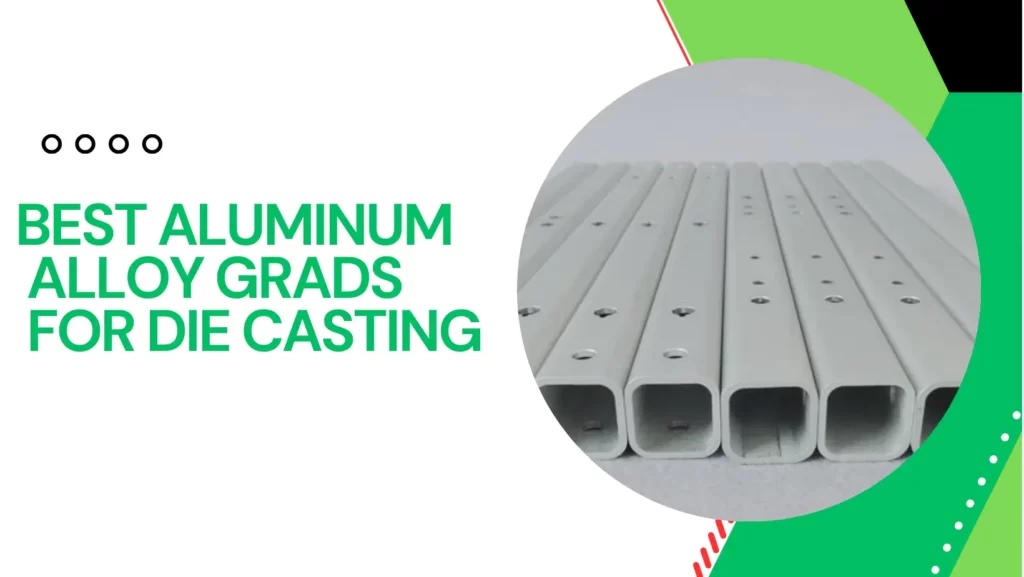The smart Trick of Alcast Company That Nobody is Discussing
The smart Trick of Alcast Company That Nobody is Discussing
Blog Article
4 Easy Facts About Alcast Company Shown
Table of ContentsAll About Alcast CompanyThe Best Guide To Alcast CompanyNot known Facts About Alcast CompanyNot known Details About Alcast Company The Only Guide to Alcast CompanyThe 6-Minute Rule for Alcast Company
The refined distinction hinges on the chemical web content. Chemical Comparison of Cast Light weight aluminum Alloys Silicon advertises castability by decreasing the alloy's melting temperature and boosting fluidness throughout casting. It plays a vital role in permitting detailed mold and mildews to be filled up accurately. Furthermore, silicon contributes to the alloy's toughness and use resistance, making it useful in applications where durability is vital, such as automobile parts and engine elements.It also boosts the machinability of the alloy, making it less complicated to process into ended up products. In this means, iron contributes to the total workability of light weight aluminum alloys.
Manganese adds to the toughness of light weight aluminum alloys and enhances workability (Casting Foundry). It is typically used in wrought light weight aluminum products like sheets, extrusions, and accounts. The presence of manganese aids in the alloy's formability and resistance to splitting throughout manufacture processes. Magnesium is a lightweight component that gives toughness and effect resistance to aluminum alloys.
The smart Trick of Alcast Company That Nobody is Discussing
Zinc enhances the castability of light weight aluminum alloys and aids regulate the solidification procedure during casting. It improves the alloy's toughness and hardness.

The key thermal conductivity, tensile stamina, return strength, and elongation differ. Among the above alloys, A356 has the highest possible thermal conductivity, and A380 and ADC12 have the lowest.
The Best Strategy To Use For Alcast Company

In accuracy spreading, 6063 is fit for applications where elaborate geometries and premium surface coatings are paramount. Instances include telecommunication rooms, where the alloy's premium formability enables smooth and aesthetically pleasing styles while maintaining architectural integrity. In the Lighting Solutions sector, precision-cast 6063 parts create classy and effective lighting fixtures that require intricate shapes and great important site thermal efficiency.
The A360 shows exceptional prolongation, making it suitable for complicated and thin-walled components. In precision spreading applications, A360 is well-suited for industries such as Consumer Electronic Devices, Telecommunication, and Power Devices.
The Buzz on Alcast Company
Its unique properties make A360 an important selection for precision casting in these industries, boosting product sturdiness and high quality. Aluminum alloy 380, or A380, is a widely used casting alloy with numerous distinct characteristics. It provides outstanding castability, making it an excellent selection for precision spreading. A380 displays great fluidity when molten, guaranteeing detailed and detailed mold and mildews are precisely replicated.
In accuracy spreading, aluminum 413 radiates in the Customer Electronic Devices and Power Tools sectors. This alloy's remarkable rust resistance makes it a superb selection for outside applications, guaranteeing resilient, sturdy items in the stated industries.
The Buzz on Alcast Company
When you have chosen that the aluminum pass away casting procedure appropriates for your job, a crucial following step is determining on one of the most suitable alloy. The aluminum alloy you choose will substantially affect both the spreading process and the properties of the final product. Due to the fact that of this, you have to make your decision carefully and take an informed approach.
Identifying the most ideal aluminum alloy for your application will mean evaluating a large range of characteristics. These comparative alloy qualities adhere to the North American Die Casting Organization's standards, and we have actually split them right into 2 classifications. The very first category addresses alloy features that affect the manufacturing procedure. The 2nd covers qualities impacting the buildings of the final item.
3 Easy Facts About Alcast Company Explained
The alloy you choose for die casting directly influences several aspects of the spreading procedure, like just how very easy the alloy is to work with and if it is vulnerable to casting problems. Warm breaking, also called solidification breaking, is a normal die casting defect for light weight aluminum alloys that can cause inner or surface-level splits or cracks.
Certain light weight aluminum alloys are more susceptible to warm splitting than others, and your option needs to consider this. One more common issue located in the die spreading of aluminum is pass away soldering, which is when the cast sticks to the die wall surfaces and makes ejection tough. It can damage both the actors and the die, so you need to search for alloys with high anti-soldering buildings.
Corrosion resistance, which is currently a noteworthy feature of aluminum, can differ considerably from alloy to alloy and is a necessary particular to think about depending upon the environmental problems your item will be exposed to (Foundry). Wear resistance is an additional property typically sought in light weight aluminum products and can separate some alloys
Report this page